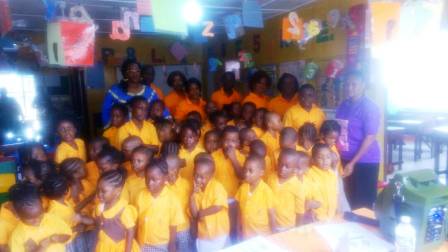World Water Day: UN Watercourses Convention vital to water-energy nexus, says Green Cross
20 March, 2014 | Geneva: The world is on the verge of a major development in the sharing and preservation of the planet’s cross-border water sources, and this Saturday’s World Water Day, which will focus on the water-energy nexus, is a timely reminder of the need for international collaboration over the use of this precious natural resource, says Green Cross International (GCI).
World Water Day 2014, which falls on 22 March, is focussing on the inter-linkages between “Water and Energy,” a point relevant to the United Nations Watercourses Convention. The Convention is an overarching legal framework promoting sustainable and equitable use of international watercourses. It requires ratification by one more country to come into force.
“The links between international watercourses and energy are clear,” says Marie-Laure Vercambre, Director of GCI’s Water for Life and Peace Programme. “Dams and mega-dams that produce hydropower, create reservoirs and regulate water flows are built on some of the world’s 276 international watercourses, like the Nile and the Mekong, which are shared by at least two countries. The coming into force of the UN Watercourses Convention will undoubtedly change the landscape of water resources management and energy security.”
The 276 international watercourses and catchment areas, connected groundwater and tributaries cover nearly half the planet’s surface, and are shared by 145 countries. They generate almost 60% of global fresh water flow. But cooperative frameworks between riparian States manage only about 40% of those watercourses.
Actress Famke Janssen, GCI’s Water for Life and Peace ambassador, stressed the importance of World Water Day in providing the impetus needed for the UN Watercourses Convention’s entry into force. “World Water Day offers the opportunity to shine a light on the remarkable work Green Cross International has done to help implement the UN Watercourses Convention and to make a final push for the framework to resolve cross-border disputes over shared water resources,” says Ms Janssen. “Only one more country is needed to sign up before it is ratified. I am extremely proud to work with Green Cross International.”
The Convention codified principles of customary law and therefore contains binding legal principles that are applicable if a country has ratified the Convention or not. But its entry into force will strengthen this body of law, and give riparian States a formal framework to work on and deepen cooperation.
“The absence of basin agreements and organizations, and good legal principles to govern, share and protect those basins, is dangerous when one considers the environmental security, economic and political stakes on the line,” adds Ms Vercambre.
“The need to conserve and share water is something we all should focus on daily. World Water Day reminds us not to take this most precious of resources for granted. In 2014, Green Cross is urging governments around the world to ratify and implement the UN Watercourses Convention, a tool to both ensure fair equity over and conservation of water, promote security and reduce tensions over the sharing of freshwater by regional neighbours.”
Since 2006, Green Cross has collaborated with the World Wildlife Fund and other partners to promote the Convention as a tool for global cooperation over freshwater and, ultimately, helping tackle the global water crisis. Demographic growth and economic development are putting unprecedented pressure on renewable, but finite, water resources and fragile ecosystems, especially in arid regions. By 2025, 1,800 million people are expected to live in countries or regions with “absolute” water scarcity. Decreasing water resources, increased pollution, climate change, urbanization and a growing demand are other hallmarks of the water crisis.
Awareness raising campaigns on the need for sound legal frameworks to manage cross-border river basins have been led by Green Cross national organizations in Burkina Faso, Ghana, Ivory Coast, Argentina, South Korea, France, Italy and Poland. Of the 34 countries that have so far ratified the Convention, 17 have done so between 2006 and 2014.
GCI works on water issues in other ways. It promotes national implementation of the Right to Water and Sanitation, and provides sustainable supplies of safe drinking water, and improved sanitation, to communities in Africa, Asia, Latin America and Eastern Europe through the Smart Water for Green Schools (SWGS) project. GCI and partner Giorgio Armani will soon launch the 2014 Acqua for Life campaign, which since 2010 has been raising proceeds for supporting new SWGS projects around the world.
GCI was founded in 1993 by Nobel Peace Laureate Mikhail Gorbachev and is an independent non-profit and nongovernmental organization advocating and working globally to address the inter-connected global challenges of security, poverty eradication and environmental degradation through advocacy and local projects. GCI is headquartered in Geneva, Switzerland, and conducts on-the-ground projects in more than 30 countries around the world.
Green Cross
Stay with Sierra Express Media, for your trusted place in news!
© 2014, https:. All rights reserved.




